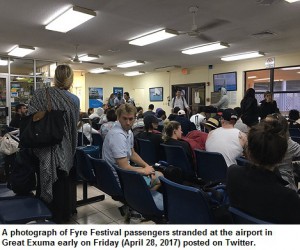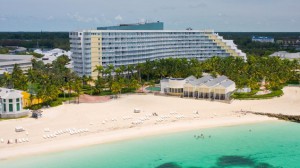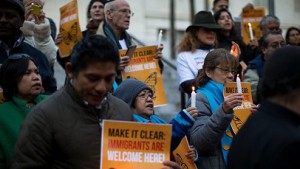Go Lean Commentary
My thimble runneth over! – Derisive Pun based on the Biblical expression “My cup runneth over”.
Considering the reality of the Coronavirus COVID-19 pandemic on our economic engines and Public Health deliveries, how do you answer:
Is your cup running over?
“My cup runneth over” is a quotation from the Hebrew Bible (Psalm 23:5) and means “I have more than enough for my needs”, though interpretations and usage vary. In desert cultures one is required by laws of hospitality to provide a drink to strangers. – Source: Wikipedia.
 For many the answer can only be: My thimble runneth over!
For many the answer can only be: My thimble runneth over!
(Check out this blog-site – http://mythimblerunnethover.blogspot.com/ – of a simple woman in Tennessee who feels that she is blessed just to have the simple things in life).
Consider the actuality of life in the Bahamas during this crisis; (this writer is a descendant of Freeport, Bahamas and observed-reported on the pandemic from Nassau):
- Jobs are affected – most private businesses, including tourist resorts, are closed or curtailed.
- Retail food prices increase because of higher inventory-carrying costs
- Hospitals and public safety institutions are overwhelmed with COVID cases: testing, tracing, therapeutics and terminal patients.
- Government Shutdown – No administrative processing, at all; no passport processing, no business registrations, etc.
This reporting describes the situation on the ground in the Bahamas as miserable. In fact, a Misery Index (inflation, unemployment and crime rate) would not do justice in depicting the despair in-country. Even Food Security is an issue; the government has had to implement a national feeding program. See a related story here, describing this program and the challenges:
Title: PM: Food assistance costs soar to $1 mil., more than 110k in need
By: Ava Turnquest
NASSAU, BAHAMAS — Prime Minister Dr Hubert Minnis yesterday revealed the government is supporting the National Food Distribution Task Force with $1 million per week to assist more than 110,000 people.
Now entering its 11th week, Minnis advised the task force will move to erestructure aid into three categories: most, moderately and least vulnerable; with assistance to be distributed weekly, bi-weekly, and once a month, respectively.
The prime minister said 27,705 households have registered for assistance, to date.
“Access to food is a basic human right,” Minnis said during his national address on Sunday.
“Around the world, and here at home, people who have been self-sufficient their entire lives are now struggling to feed themselves and their families.
“Ensuring that our people in need are being helped is one of our leading priorities. We are investing heavily in food assistance.”
He continued: “I understand the unique situation so many of you find yourselves in, never imagining that you would ever have to seek assistance to have enough to eat.
“It is important, at this point in the program, to emphasize that first and foremost the Task Force is implementing a needs-based program.
“We have set out to help those in our communities who are the most vulnerable.”
Minnis said he asked the task force to reach out to smaller grocery stores so that arrangements can be made for food vouchers to be purchased from stores throughout the country.
“We would like neighborhood “Mom and Pop Shops” to participate in, and benefit from, this exercise with us,” he said.
During his address, Minnis noted the budget allocation of $16 million dollars for food assistance.
“Your government is delivering on this commitment,” he said.
“We are now providing $1 million dollars per week to the National Food Distribution Task Force for food assistance, to ensure those who are truly in need of food are being helped.
“Our Food Task Force is making every effort to preserve safety and dignity.”
Minnis noted an interaction with an individual who registered for assistance but later advised they were no longer in need.
“We are so grateful to people like Mr. Knowles, who I am told registered for food assistance but recently wrote back to the Task Force saying, “I am well and God has provided me with more than enough, so I don’t need any further assistance. Please provide it to those in need”.”
“Mr. Knowles’ noble action enables the Task Force to stretch the budget and help those who really need it most.”
Minnis added: “We thank Mr. Knowles and others like him, who understand that even in these difficult times, there are those who are in deep, deep need while others are not struggling as much.”
Source: Posted August 20, 2020; retrieved August 27, 2020 from: https://ewnews.com/pm-food-assistance-costs-soar-to-1-mil-more-than-110k-in-need
The Bahamas has a population of 340,000 (circa 2010) and yet 110,000 are being fed by the government.
Sad! $1 million per week for 110,000 people means $10 each … per week. Wow, the thimble runneth over!
One cannot wait until it rains to get an umbrella.
There should have been some disaster planning for this pandemic in advance – this is called a Pandemic Playbook. The Bahamas, and the whole Caribbean region, was alerted 5 years ago to be prepared for such a possibility; see here:
Lesson Learned – Mitigating SARS in Hong Kong – March 24, 2015
The people, institutions and governance of the Caribbean need to pay more than the usual attention to the lessons of SARS in Hong Kong [(2003], not just from the medical perspective, but also from an economic viewpoint.During the “heyday” of the SARS crisis, travel and transport to Hong Kong virtually came to a grinding halt! Hong Kong had previously enjoyed up to 14 million visitors annually; they were a gateway to the world. The SARS epidemic became a pandemic because of this status. Within weeks of the outbreak, SARS had spread from Hong Kong to infect individuals in 37 countries in early 2003.[3]
Can we afford this disposition in any Caribbean community?
This commentary continues the Teaching Series for the month of August 2020 on the subject of Pandemic Playbooks – the need for them and the current deficiency there of in the Caribbean. This is entry 3-of-6 from the movement behind the 2013 book Go Lean…Caribbean. The other commentaries in the series are cataloged as follows:
- Pandemic Playbook: Worldwide Leadership – Plan ==> Actual
- Pandemic Playbook: Caribbean Inadequacies – Missing the Bubble Opportunities
- Pandemic Playbook: Bahamas Example – ‘Too Little; Too Late’
- Pandemic Playbook: Only at the Precipice – ENCORE
- Pandemic Playbook: To Be or Not To Be – COVID Vaccine
- Pandemic Playbook: Success – Looks like New Zealand
Are we assigning blame to the Government of the Bahamas for being ill-prepared for the eventuality of this COVID-19 crisis?
Yes – Too Little; Too Late.
In fact, we assigned the same blame to all the member-states of the entire Caribbean. This is because governments have a certain expectation, responsibility and job description. This is referred in the Go Lean book – and in standard Good Governance – as the implied Social Contract; defined as follows:
“citizens surrender some of their freedoms and submit to the authority of the State in exchange for protection of remaining natural and legal rights”.
No Food Security on an island or within a chain of islands?
Wait! Why not just Go Fish?
Nope! The government’s playbook forbids standard fishing solutions among the archipelago of island. See this source here:
THE COMMONWEALTH OF THE BAHAMAS
GENERAL PROTOCOLS FOR
BOATS, YACHTS, PRIVATE CRAFT, RECREATIONAL CRAFT, CRUISING IN, PLYING THE WATERS OF, OR SHELTERING IN THE BAHAMAS OR SEEKING TO DO SO
DURING THE COVID-19 SHUT-DOWN
14 April, 2020
- …
- All foreign boats shall remain in place. There shall be no boating, cruising, fishing, day trips or other movement of any kind.
- Boats belonging to Bahamians or Bahamian residents whose boats have a regular berth or place in The Bahamas shall comply with the following restrictions:
- …
- On no account shall Bahamian boats travel from one island of The Bahamas to another …
- …
- In order to minimize interpersonal contact and to respect the lockdown and curfew requirements, Bahamian boats shall not engage in boating, cruising, day trips or other movement. However, Bahamian boats may engage in subsistence fishing and local fishing for sustenance only (no sports fishing) at allowable times only and with all possible precautions (including Pars. (10) to (13) hereof), and only with the boat departing from and returning to the same location.
So unless you own your own boat – rare in the community – no subsistence fishing (for personal consumption) is allowed.
How about the land? Can Bahamians feed themselves “of the land”, as in subsistence farming?
Nope! Despite our foregoing assertion that “one cannot wait until it rains to get an umbrella”, the Bahamas Ministry of Agriculture is doubling-down in its desire to encourage Backyard Farming and Community Gardens; only now. See the full story here:
Title: Michael Pintard – Agriculture Minister – Relaunches Backyard Farming Programme
By: DENISE MAYCOCK, Tribune Freeport Reporter
AGRICULTURE and Marine Resources Minister Michael Pintard relaunched the Backyard Farming Programme on Friday, distributing 1,500 backyard kits here on Grand Bahama.
This comes a day after the announcement of an extension of the lockdown for another two weeks to August 19, to control the spread of the coronavirus infections on Grand Bahama.
Additionally, Mr Pintard revealed plans to launch community gardens throughout the island, in partnership with the five GB MPs. Land will be identified and cleared in each of the five constituencies to grow community gardens.
Mr Pintard said these programme initiatives are part of the food security programme, which is important, especially due to the global coronavirus pandemic.
“Again, we are in a difficult period and we believe that the potential for disruption in the food supply is real, given COVID-19,…” he said.
According to Minister Pintard, of the 1,500 kits assembled at the Department of Agriculture in Freeport, 100 will be distributed to each of the five MPs, and the remainder to churches, NGOs, and others.
He believes that “the revitalized” backyard farming programme will not only help the country in terms of its expenditure on food imports, but will also benefit residents.
“We believe it will enhance our ability to save money on our food bill, but also assist a number of persons in growing their farming operation as well. This is going to be accompanied by two other programmes: the distribution of a variety of seeds also on the island as a separate part of our backyard and community farming programmes. We have many more seeds that supply a minimum of 1,000 households,” Mr Pintard said.
The minister was pleased that all five MPs have agreed to support and participate, including Minister of State for Disaster Preparedness Iram Lewis, MP for Central Grand Bahama, Pakesia Parker-Edgecombe of West Grand Bahama and Bimini, Deputy Prime Minister Peter Turnquest of East Grand Bahama, and Frederick McAlpine, MP for Pineridge.
“We don’t believe that MPs are the only conduits by which kits should be distributed, and we want to make sure we have 1,000 kits, plus 1,000 additional seed packages distributed, through partnership with churches, NGOs, and others,” he said.
In terms of the community gardens, Mr Pintard noted that they will be clearing properties for community gardening in every constituency, and will also be partnering with local government on that initiative.
MP Pakesia Parker Edgecombe said she is very appreciative for the kits, which will be distributed in her constituency. “It is important for us to promote food sustainability. I know with the crisis we are going through many are asking about food security. What Mr Pintard and his ministry have been able to do with this initiative and this programme, is to (encourage people) to grow your own food and not spend so much at the supermarket,” she said.
MP Iram Lewis said he has been a strong advocate for backyard farming. “I was happy when the Minister decided to partner with us to take backyard farming to the next level where we form cooperatives in the community by having community gardens. All MPs have identified an area in their constituencies for these community gardens.”
Mr Lewis said a major anchor garden has been identified on South Mall Drive where there will be a seedling nursery and a production area, and weekly Farmers’ Market.
“We really appreciate this gesture,” he said. We are happy it is officially launched and will go a long way, with respect to food security and putting healthy produce that we grow ourselves on our table,” he said.
Tutorial videos and workshop for persons interested in backyard and community gardening is available on the Ministry’s website. Anthony Hutcheson will also provide lectures and tips on how to plant and care for the garden.
Source: Posted Friday August 7, 2020; retrieved August 27, 2020 from: http://www.tribune242.com/news/2020/aug/07/michael-pintard-relaunches-backyard-farming-progra/
Yes, indeed! The assessment is conclusive: Too little; Too late!
In contrast, the full strategies, tactics and implementations for Food Security and Disaster Preparation had already been embedded in a roadmap for reforming and transforming the Caribbean; this is the purpose of the Go Lean book. This is a vision of a Pandemic Playbook. Rather than “waiting for it to rain and then go looking for an umbrella”, the Go Lean roadmap presents a plan for New Guards for Homeland Security and Public Safety on Day One / Step One of the ascension of the Caribbean Union Trade Federation.
See the vision for Caribbean Food Security plus Disaster Preparation (and Response) as presented in previous blog-commentaries; consider this sample:
Food Security
| https://goleancaribbean.com/blog/?p=19725 | Keep the Change: Being ‘Basic’ about Basic Needs |
| https://goleancaribbean.com/blog/?p=18836 | Food Security – Big Chicken 101 |
| https://goleancaribbean.com/blog/?p=18834 | Food Security – A Lesson in History: Free Trade Agreements & Food |
| https://goleancaribbean.com/blog/?p=18831 | Food Security – Planning and Opportunities for the Cruise Line industry |
| https://goleancaribbean.com/blog/?p=18828 | Food Security – A Plan for Temperate Foods in the Tropics |
| https://goleancaribbean.com/blog/?p=18817 | Food Security – Bread Basket 101 |
| https://goleancaribbean.com/blog/?p=13184 | Industrial Reboot – Frozen Foods 101 |
Disaster Preparation and Response
| https://goleancaribbean.com/blog/?p=20052 | Natural Disasters: The Price of Paradise |
| https://goleancaribbean.com/blog/?p=19568 | Big Hairy Audacious Goal – Need ‘Big Brother’ for Pandemics |
| https://goleancaribbean.com/blog/?p=18243 | The Need after Disasters? Regionalism – ‘How you like me now?’ |
| https://goleancaribbean.com/blog/?p=18182 | Disaster Relief: Helping, Not Hurting |
| https://goleancaribbean.com/blog/?p=17500 | Continuity of Business: Lessons on Recovery from System Failures |
| https://goleancaribbean.com/blog/?p=15996 | Good Governance: Stepping Up in an Emergency |
| https://goleancaribbean.com/blog/?p=15886 | Industrial Reboot – Planning for Disasters with Reinsurance |
| https://goleancaribbean.com/blog/?p=8943 | Zika’s Drug Breakthrough – End-Game of an Playbook |
| https://goleancaribbean.com/blog/?p=7449 | ‘Crap Happens’ – So What Now? |
| https://goleancaribbean.com/blog/?p=4720 | Lesson Learned – Mitigating SARS in Hong Kong |
| https://goleancaribbean.com/blog/?p=4308 | 911 – Emergency Response: System in Crisis |
| https://goleancaribbean.com/blog/?p=2397 | Lesson Learned – Monitoring and Mitigating Ebola |
| https://goleancaribbean.com/blog/?p=1003 | Painful and rapid spread of new virus – Chikungunya – in Caribbean |
Here’s the major problem: the whole Caribbean – not just the Bahamas – is in competition with the rest of the world, whether we want to be or not. In fact, the original motivation of the 2013 book Go Lean…Caribbean was to execute a Regional Battle Plan to dissuade emigration – to lower the Push-Pull factors that lead to the Brain Drain.
We are losing that Battle.
Some countries – that we compete against – are stepping up and filling the “cups of sustenance” for their citizens and residents, while here in the Caribbean, we are falling short. This is evident in the Bahamas, as related in the foregoing, as they are only able to provide some basic food support for some citizens, as a rate of $10 per person per week. Yes, the competition is doing so much more; see here:
- Canada is providing families $950 every 2 weeks for the duration of the pandemic, plus freezing rents & mortgages.
Source: https://www.usatoday.com/story/news/factcheck/2020/07/24/fact-check-canadas-pandemic-relief-isnt-broad-claimed/5493166002/ - The US provided a one-time $1,200 Stimulus Check to all their tax-payers – plus $500 per child.
- The UK government’s emergency fiscal measures – including paying 80% of the salaries of furloughed workers, higher welfare spending, tax cuts and grants for small companies – will cost around 104 billion pounds. The government has also announced 330 billion pounds in state-guaranteed loans.
- As of May 2020, the Euro Zone’s (which includes the Caribbean stakeholders of France and The Netherlands) total fiscal response to the epidemic is tallied at 3.2 trillion Euros. Of that total some 2.7 trillion Euros comes from national fiscal stimulus and government guarantees for companies to keep them in business. On top of that, 100 billion Euros of money jointly borrowed by the EU is to go to a scheme to subsidize wages so firms can cut working hours, not jobs.
Source: https://www.fm-magazine.com/news/2020/may/global-coronavirus-pandemic-relief-efforts-infographic.html
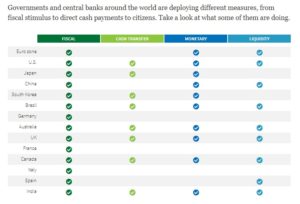
For us in the Caribbean in general, and in the Bahamas in particular, can you see the “Too Little; Too Late” dilemma? Do you see the “Push”? Do you see the “Pull”?
Brain Drain – Where the Brains Are – February 25, 2020
For us in the Caribbean, it is important for us to understand the full width-and-breadth of Brain Drains. Every month, the movement behind the Go Lean book present a Teaching Series on a subject germane to Caribbean life. For this February 2020, our focus is on the machinations that lead to Brain Drain. This is entry 1 of 5 for this series, which details that every community everywhere has people with brains – or those with genius qualifiers – it is just the opportunities that is missing in many communities. So there is the need to analyze the “Push and Pull“ factors that causes our genius-qualified-people to abandon this homeland and then identify the strategies, tactics and implementations that we must consider in order to abate this bad trend.Firstly, the “Push and Pull” reasons are identified in the Go Lean book as follows:
- “Push” refers to people who feel compelled to leave, to seek refuge in a foreign land. “Refuge” is an appropriate word; because of societal defects, many from the Caribbean must leave as refugees – think LGBT, Disability, Domestic-abuse, Medically-challenged– for their life, liberty and pursuit of happiness.
- “Pull”, on the other hand refers to the lure of a more prosperous life abroad; many times our people are emigrating based on a mirage of “greener pastures”; but many times, the “better prospect” is elusive for the first generation.
The Coronavirus COVID-19 pandemic is a real threat and crisis for our Caribbean region; we have no choice but to contend with it. Our competition, with the rest of the world is also real; we have to contend with that as well.
We need a better Pandemic Playbook; we need Good Governance. We need to do more! Individually, our member-states are crippled – we cannot fill a cup; only drip into a thimble. We must leverage the full region; we need a Single Market for the Caribbean now more than ever. See how the EU Single Market – our role model – is micro-managing the economic-fiscal fall-out in the Appendix VIDEO below.
This crisis would be a terrible thing to waste …
We urge all Caribbean stakeholders – governments, citizens, institutions, trading partners and Diaspora – to come together, to convene, collaborate and confederate to forge a better response to this global pandemic crisis. This is how we can make the homeland a better place to live, work and play. Our people have choices and options; they can, and have abandoned us and fled to more prosperous (resilient) lands abroad. Let’s wake up, fight back and compete for our people.
Despite the challenges, if we unify, we can compete – Yes, we can – it is conceivable, believable and achievable. 🙂
About the Book
The book Go Lean…Caribbean serves as a roadmap for the introduction and implementation of the technocratic Caribbean Union Trade Federation (CU), for the elevation of Caribbean society – for all member-states. This CU/Go Lean roadmap has these 3 prime directives:
- Optimization of the economic engines in order to grow the regional economy to $800 Billion & create 2.2 million new jobs.
- Establishment of a security apparatus to ensure public safety and protect the resultant economic engines.
- Improve Caribbean governance to support these engines, including a separation-of-powers between the member-states and CU federal agencies.
The Go Lean book provides 370-pages of turn-by-turn instructions on “how” to adopt new community ethos, plus the strategies, tactics, implementations and advocacies to execute so as to reboot, reform and transform the societal engines of Caribbean society.
Download the free e-Book of Go Lean … Caribbean – now!
Who We Are
The movement behind the Go Lean book – a non-partisan, apolitical, religiously-neutral Community Development Foundation chartered for the purpose of empowering and re-booting economic engines – stresses that reforming and transforming the Caribbean societal engines must be a regional pursuit. This was an early motivation for the roadmap, as pronounced in the opening Declaration of Interdependence (Pages 12 – 14):
x. Whereas we are surrounded and allied to nations of larger proportions in land mass, populations, and treasuries, elements in their societies may have ill-intent in their pursuits, at the expense of the safety and security of our citizens. We must therefore appoint “new guards” to ensure our public safety and threats against our society, both domestic and foreign. …
xi. Whereas all men are entitled to the benefits of good governance in a free society, “new guards” must be enacted to dissuade the emergence of incompetence, corruption, nepotism and cronyism at the peril of the people’s best interest. The Federation must guarantee the executions of a social contract between government and the governed.
xii. Whereas the legacy in recent times in individual states may be that of ineffectual governance with no redress to higher authority, the accedence of this Federation will ensure accountability and escalation of the human and civil rights of the people for good governance, justice assurances, due process and the rule of law. As such, any threats of a “failed state” status for any member state must enact emergency measures on behalf of the Federation to protect the human, civil and property rights of the citizens, residents, allies, trading partners, and visitors of the affected member state and the Federation as a whole.
xvi. Whereas security of our homeland is inextricably linked to prosperity of the homeland, the economic and security interest of the region needs to be aligned under the same governance. Since economic crimes … can imperil the functioning of the wheels of commerce for all the citizenry, the accedence of this Federation must equip the security apparatus with the tools and techniques for predictive and proactive interdictions.
xxxiii. Whereas lessons can be learned and applied from the study of the recent history of other societies, the Federation must formalize statutes and organizational dimensions to avoid the pitfalls of communities like … . On the other hand, the Federation must also implement the good examples learned from developments/communities like … .
Sign the petition to lean-in for this roadmap for the Caribbean Union Trade Federation.
—————–
APPENDIX VIDEO – COVID-19: EU’s plan to save the economy – https://youtu.be/KyRKU2DePO0
EURACTIV
Posted April 20, 2020 – The European Commission estimates the economic impact of the coronavirus outbreak could be greater than the financial crisis in 2008.
In order to keep the economy running, the EU executive introduced flexibility for funds and national expenditure, member states approved a safety net of liquidity for countries, workers and companies involving the ESM, EIB, and Commission SURE, and EU leaders agreed on the need to work out a recovery plan for the block in the coming months.
EURACTIV looked into the details of the EU’s economic response to the COVID-19 outbreak.
 A Caribbean island – the Northern Bahamas island of Grand Bahama – just got hit with a once in a lifetime Category 5
A Caribbean island – the Northern Bahamas island of Grand Bahama – just got hit with a once in a lifetime Category 5 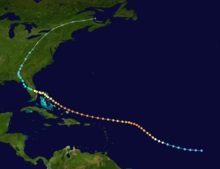
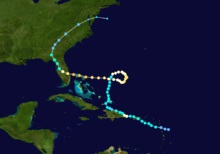
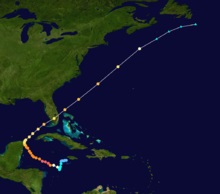


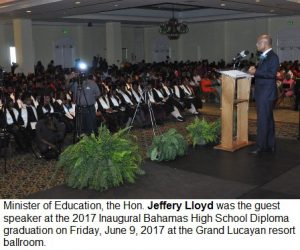
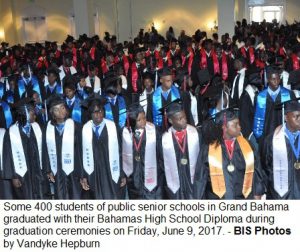

 “Be the change you want to see in the world” – Mahatma Gandhi
“Be the change you want to see in the world” – Mahatma Gandhi




